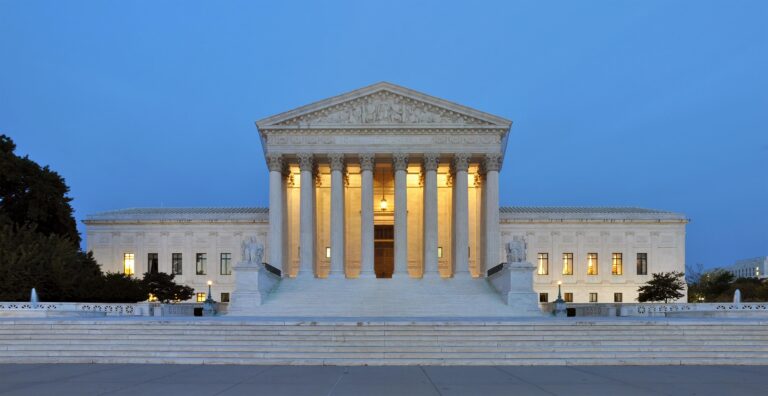Supreme Court Reviews CBD Use and Employment Law Amidst Cannabis Legalization
The United States Supreme Court is currently addressing a pivotal case involving a commercial truck driver who was dismissed after testing positive for THC, a cannabinoid found in cannabis-derived CBD products. This case underscores the growing friction between federal drug laws, which still classify cannabis as illegal, and the expanding acceptance and legalization of cannabis and CBD products across numerous states. At the heart of the debate is whether employers must accommodate the use of legally obtained cannabis-based CBD products that may cause positive drug test results, despite federal prohibitions.
Legal analysts highlight several key issues under scrutiny:
- Accuracy of drug testing: The ability of current tests to differentiate psychoactive THC from non-intoxicating CBD metabolites.
- Employee protections: Whether lawful off-duty use of CBD should impact employment decisions.
- Employer enforcement: The scope of zero-tolerance drug policies in industries with stringent safety requirements amid evolving cannabis laws.
| Core Issue | Key Considerations | Possible Outcomes |
|---|---|---|
| Drug Test Differentiation | Separating THC from CBD metabolites | Potential overhaul of testing standards |
| Federal vs. State Law | Contradictions between cannabis legality and federal prohibition | Varied employee legal protections |
| Workplace Drug Policies | Enforcement of zero-tolerance rules | Policy revisions to accommodate legal CBD use |
Navigating Legal Complexities for Truckers Amid Cannabis Legalization
As cannabis legalization spreads, truck drivers who test positive for cannabinoids face a maze of conflicting regulations. Despite many states permitting medical or recreational cannabis and hemp-derived CBD products, federal law continues to classify cannabis as a Schedule I substance, creating a legal paradox. Drivers using hemp-based CBD products may be penalized even when not impaired, leading to contentious legal disputes. Key challenges include:
- Zero-tolerance enforcement: Drug tests that do not distinguish between legal hemp-derived CBD and illicit cannabis use.
- Ambiguity in employment law: Difficulty in proving wrongful termination or discrimination when positive tests result from legal substances.
- Federal-state law conflicts: The struggle to reconcile contradictory statutes affecting workers’ rights and employer responsibilities.
The Supreme Court case exemplifies these tensions, with the trucker’s defense asserting that the positive THC result originated from a federally legal CBD product, not recreational cannabis. Advocates argue this distinction should protect employees from termination, urging regulatory updates. Courts must weigh workplace safety concerns against shifting public attitudes toward cannabis use. The ruling could establish a landmark precedent, influencing drug testing policies in federally regulated sectors.
| Issue | Employer’s Stance | Employee’s Argument |
|---|---|---|
| Drug Test Outcome | Positive for THC | Result of legal hemp-derived CBD use |
| Applicable Regulation | FMCSA’s zero-tolerance policy | State laws permitting hemp products |
| Possible Resolution | Termination upheld | Reinstatement and policy reform |
How This Case Could Reshape Workplace Drug Policies and Federal Regulations
The Supreme Court’s forthcoming decision may trigger a comprehensive reassessment of drug testing protocols, especially in industries with strict zero-tolerance policies such as transportation, construction, and manufacturing. Employers might be required to adopt advanced testing technologies capable of distinguishing between THC from cannabis-based CBD products and illicit drug use. This could lead to revisions in employee handbooks and clearer guidelines on permissible substances, balancing safety with evolving legal realities.
- Redefining impairment: Shifting focus from mere presence of cannabinoids to actual impairment assessment.
- Policy modernization: Updating workplace rules to explicitly address legal CBD consumption and its impact on drug tests.
- Legal risk management: Navigating the balance between protecting employees’ rights and ensuring workplace safety.
| Proposed Policy Changes | Expected Impact |
|---|---|
| Advanced Drug Testing Methods | Improved accuracy, reducing false positives |
| CBD Use Exception Clauses | Safeguards for lawful CBD product users |
| Employee Education Programs | Enhanced awareness of regulations and rights |
On a regulatory level, this ruling may prompt federal agencies to clarify the ambiguous status of hemp-derived products. The 2018 Farm Bill legalized hemp and its derivatives, including CBD, but federal drug laws still broadly prohibit cannabis. This inconsistency complicates enforcement and compliance, especially for agencies like the Department of Transportation and OSHA. The Supreme Court’s decision could influence future legislative reforms or amendments to the Controlled Substances Act, aligning federal policies with the evolving cannabis landscape.
Practical Recommendations for Employers and Employees Regarding CBD Use and Drug Testing
As cannabis-based products become more prevalent, both employers and employees must navigate the complexities of drug testing and workplace safety. Since many CBD products contain trace THC levels, drug tests may yield positive results even when no intoxicating cannabis use has occurred. Employers should develop clear, updated policies that define prohibited substances while acknowledging the potential for legal CBD exposure. This requires a balanced approach considering product quality, third-party testing certifications, and the latest federal and state regulations.
Essential considerations include:
- Refining drug testing procedures: Employ tests that can quantify THC levels and assess impairment rather than mere presence.
- Employee education: Inform staff about the risks of over-the-counter CBD products and the possibility of positive THC tests.
- Legal compliance: Consult legal experts to ensure policies align with federal protections under the 2018 Farm Bill and state laws.
- Reasonable accommodations: Develop frameworks to support medical cannabis use where legal, while maintaining safety standards.
| Factor | Employer Approach | Employee Best Practice |
|---|---|---|
| THC Detection | Set clear THC concentration thresholds for positive results | Verify product lab testing before use |
| Legal Compliance | Regularly update policies to reflect changing laws | Stay informed on local and state cannabis regulations |
| Workplace Safety | Focus on impairment-based testing methods | Disclose any legal medicinal cannabis use proactively |
Final Thoughts on CBD, Employment Law, and the Supreme Court’s Upcoming Ruling
The Supreme Court’s review of the trucker’s dismissal over a positive THC test linked to cannabis-based CBD products could have profound consequences for employment law and cannabis regulation across the United States. The decision is anticipated to clarify the intersection of federally regulated drug policies and the growing acceptance of CBD, offering much-needed guidance to employers, employees, and the rapidly expanding CBD industry. As legalization trends continue, this ruling may serve as a cornerstone for future policies balancing workplace safety with evolving societal norms.







